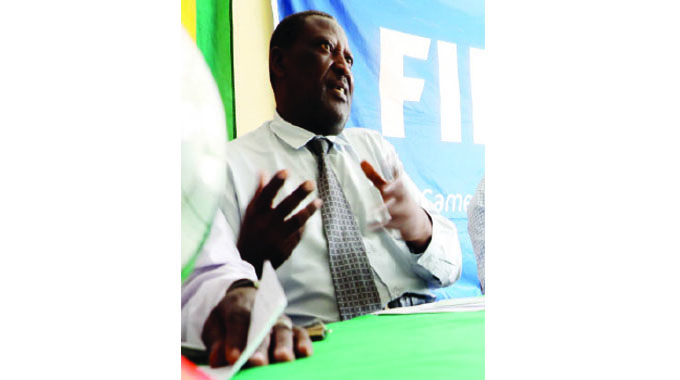Guyu-Chelesa Irrigation Scheme set to harvest first crop

Sukulwenkosi Dube-Matutu, Chronicle Reporter
FARMERS operating at Guyu-Chelesa Irrigation Scheme are set to harvest their first crop, in five years, next month after their scheme was rehabilitated under the Smallholder Irrigation Revitalisation Programme (SIRP).
The 32-hectare scheme was also expanded under the programme to 84 hectares.
Farmers stopped working in 2017 due to a fault in the water pumping system.
The farmers now have 16 hectares under maize crop with most at tasselling stage. The scheme also has 16 hectares under sugar beans which is at flowering stage.
Farmers are also preparing 30 hectares where they are set to plant wheat next month.
The Smallholder Irrigation Revitilisation Programme (SIRP) programme was launched in November 2017 to assist revitalise irrigation schemes across the country through rehabilitation of infrastructure.
The programme is funded by International Fund for Agricultural Development (IFAD) and Government to the tune of US$52 million.
It is targeting the rehabilitation of 6 100 hectares of smallholder irrigation schemes in Zimbabwe.
It operates in Matabeleland South, Manicaland, Masvingo and Midlands provinces. In Matabeleland South the programme is in Gwanda, Insiza, Beitbridge, Matobo and Mangwe districts. Other irrigation schemes in the province that have been revived under SIRP include Tshikwalakwala Irrigation Scheme in Beitbridge which had been grounded for the past 15 years, and Sebasa Irrigation which had been lying idle for several years.
Under the Second Republic, Government is prioritising the revival of the agricultural sector through the development of irrigation schemes to alleviate food insecurity and poverty particularly in rural communities and ensure attainment of Vision 2030. As part of its measures, Government has deployed managers to irrigation schemes across the country to maximise production.
Guyu-Chelesa Irrigation Scheme chairperson, Mr Gifford Moyo said the rehabilitation of the irrigation scheme has brought hope to the farmers. He said the irrigation scheme has 160 farmers.
“Our irrigation is now functioning once again after lying idle for five years. We stopped producing because our water pumping system had a fault. We initially had 32ha which was irrigable at the irrigation and after being rehabilitated we now have an additional 32ha for crop production and another 20ha for fodder production. It was really difficult for 160 farmers to share 32ha but now that the irrigation has expanded it will mean farmers will have more working space,” he said.
“We used the farm mainly for household consumption but now we want to farm for business. Our target is to produce crops that bring in cash. We will be supplying local communities as well as institutions such as schools. We have 16 hectares under maize and 16 hectares under sugar beans.”
A farmer operating at the irrigation scheme Mrs Jennifer Ndlovu said they had received training from Agritex on best farming practices. She said they were also operating with the guidance of a manager who was based at the irrigation scheme.
Mrs Ndlovu said they will now be able to harvest for household consumption and business purposes. She said they were looking forward to their first harvest which will be next month.
“Our crop is doing well and we are looking forward to our first harvest in five years. When our irrigation was operational it really helped us to feed our families. We were now having challenges since our irrigation was not operational but now we expect a change,” she said.
Ward 14 Councillor, Mr Phineas Maphosa said rehabilitation of the irrigation scheme brings relief to the community and ensures food security. He said the crop at the scheme will assist the community especially this year where villagers lost most of their crops because of poor rains.
Guyu-Chelesa Irrigation Scheme manager, Mr Tafadzwa Zvinokona said they were in the process of preparing 30 hectares for winter production.
“We are preparing to do hay bailing on 30 hectares for wheat. The plan is to start planting wheat end of next month.
Farmers have commercialised their activities and once harvesting of the maize crop and sugar beans we plan to supply local communities and institutions. Farmers at the irrigation are doing well as they have received training,” he said.
In an interview Matabeleland South acting provincial irrigation engineer Mr Shepard Mpotekwa said rehabilitation works that were done at Guyu-Chelesa Irrigation Scheme included extension of infills from 32 to 84ha, installation of a convergence pipeline, construction of a new booster pump house, installation of a new pumping system, mending a 1,6 million night storage tank, drilling of new boreholes among others. — @DubeMatutu










Comments